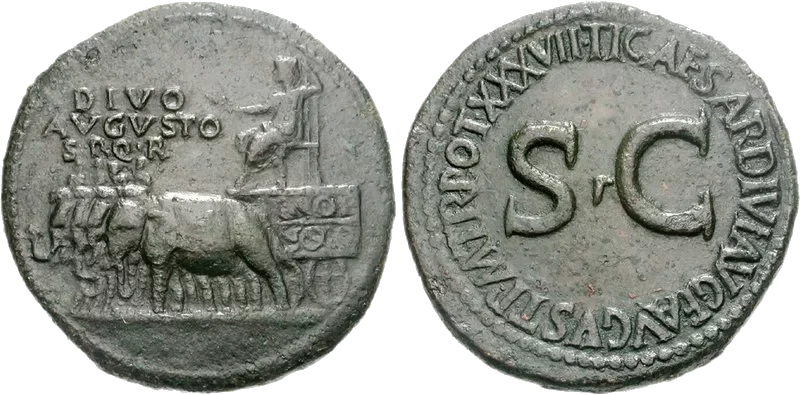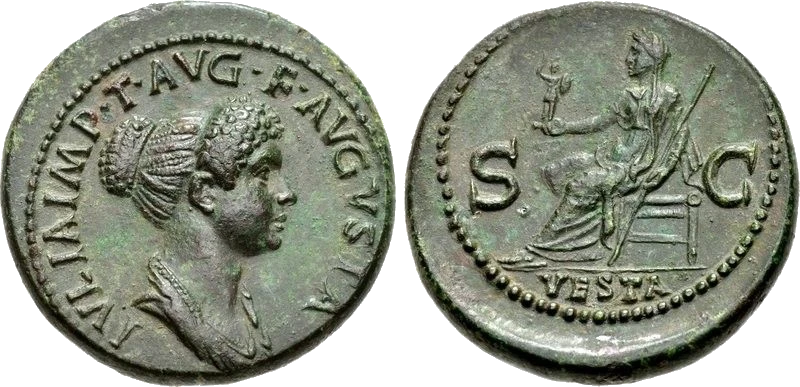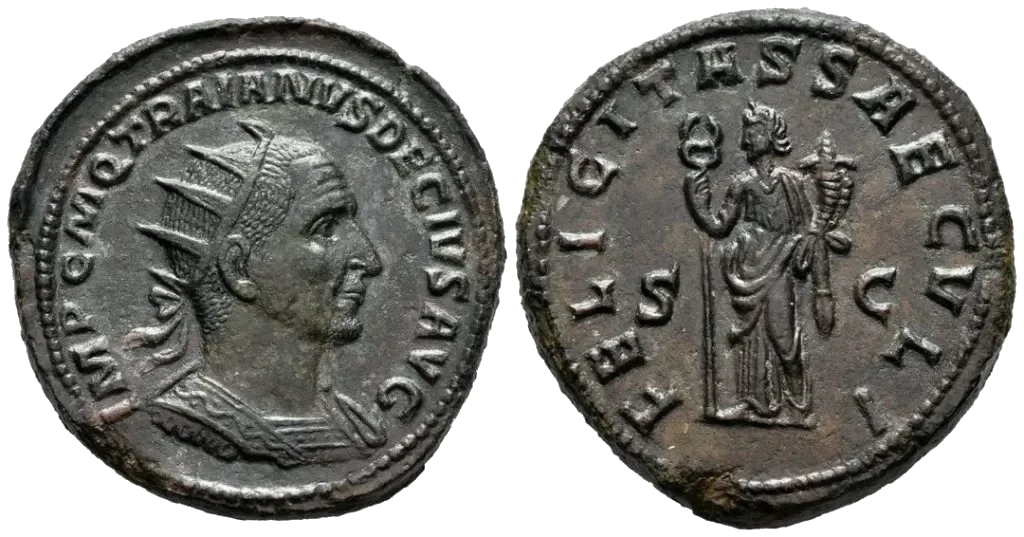Many ancient coins from the Classical age are full of abbreviations and symbols that can be difficult for us to understand a couple of millennia later. So, over time, we are going to be taking a look at them here in NumisTeacher. In our first article in this series, we will deal with the meaning of the letters “SC” in a Roman coin. First, I’ll give you a definition and we’ll talk about why those letters appear in coins, and finally, I’ll tell you which Roman coins show more frequently those letters.
In Roman Coins, the letters “SC” are the initials of the Latin expression “Senatus Consultum”, whose meaning in English is “By Decree of the Senate”. It meant that a coin that had those letters on it, usually made out of bronze, had the full legal backing of the Roman Senate.
Why do some Roman coins have the letters ‘SC’ on them?
I’m going to oversimplify it a little bit, but here’s the gist:
When the Roman emperor Augustus passed his monetary reform in the year 23 AD, the imperial monetary system started using four different metals: gold, silver, bronze and copper. And one of the things that this reform did is to make sure that issuing gold and silver coins became the Emperor’s prerogative, while the Senate kept their right to issue of copper and bronze coins. The Emperors that came after Augustus preserved that “division of labor” with the Senate.

Furthermore, the metal content of the bronze coins issued from then on was below what it should have been in a strict silver standard, which is what Augustus’ reform really implemented. Because of this, without any kind of clear signal from the “state”, the adoption of the new bronze coin by the population in Roman territory could have been very slow and very low, as they would have preferred older coins with more bronze in them. Having some kind of legal backing shown on the coin itself reinforced the idea that the new money was every bit as good as the old one.

And why the letters “SC” specifically, and not some others?
Well, in Roman times, the Senate was the greatest source for legal texts. During the Republic, magistrates would consult the Senate when they needed to make some of their decisions, and the Senate would issue a non-binding legal text called Senatus Consultum. However, with the dawn of the Empire, those Senatus Consulta took full force and effect, on the same footing as any other law.

So, in order to let the Roman population know that the coinage of a bronze coin had the Senate’s approval, the initials “SC” were included, making a reference to the fact that there was a Senatus Consultum that would back them up. Mind you, this does not necessarily mean that the Senate gave the order to mint that coin, or that coins with that “SC” that were the only ones considered as legal tender.
In what kind of Roman coins is it more frequent to find the ‘SC’ letters?

As I’m sure you can imagine by now, the letters “SC” can usually be found in the bronze coins from the Early Roman Empire, which is the name given in historiography to the stage that goes from the transition from Republic to Empire, carried out by Augustus in 27 BC, to the end of the Principate, brought about by the resolution of the Crisis of Third Century in 284 AD, when the Senate of Rome effectively loses its political power and influence. However, even though most of the “SC” coins belong to this period and are made out of bronze, there exist “SC” coins from other periods and materials.